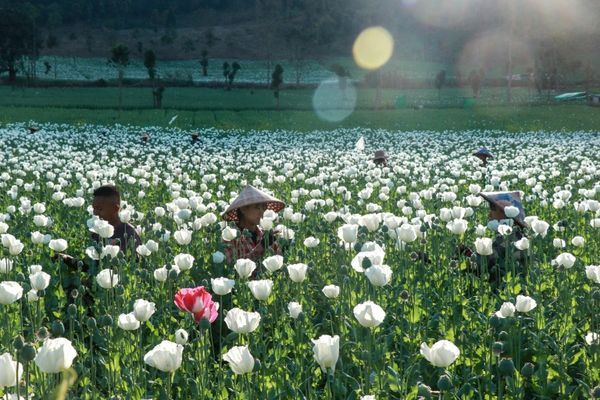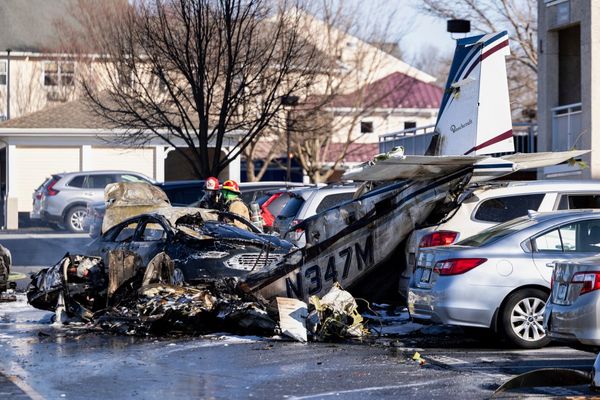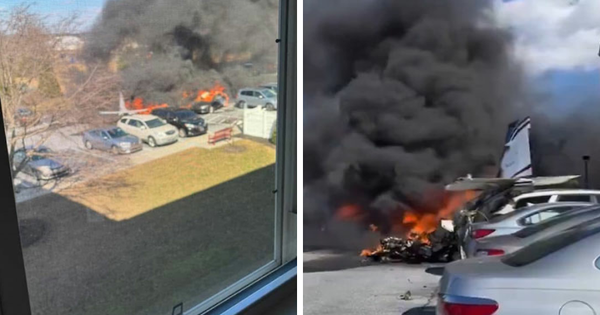
Support truly
independent journalism
Kamala Harris’s uncle has fired back at JD Vance over his sexist “childless cat ladies” comments, brushing off Donald Trump’s running mate as not “a great thinker”.
Dr Gopalan Balachandran, a psephologist and expert on US-India relations who lives in India, spoke to The Independent about his niece’s chances of taking the White House in November, how her heritage could help her in the role and what he thinks about the personal attacks coming from her Republican rivals.
In the past couple of weeks, Vance has come under fire for his misogynistic comments branding Harris and other women “childless cat ladies”.
Balachandran told The Independent he doesn’t think comments like Vance’s are “worth responding to”.
“I don’t think he is a great thinker, not even a thinker,” he said.
Vance’s remarks, which were made in 2021 but resurfaced after he was named Trump’s vice presidential pick, represent just one of many personal attacks Harris has faced since President Joe Biden stepped down from the 2024 race and she launched her own presidential campaign.
Last week, Trump questioned Harris’s Black and Indian heritage, bizarrely claiming that she only recently “became Black” to win votes and questioning how she can be both “Indian or Black”.
Responding to Trump’s comments, Balachandran said: “I have no idea what Trump meant by ‘always Indian’. She went to school in Oakland, she was bused while in school, she went to Howard University, a historically black college.”
“Her early childhood photos show her in civil rights marches in which few Indians at that time were interested.”
He added: “Sure, her mother took her to temples in the Bay Area, etc., but she took her oath at various swearing-in ceremonies on the Bible along with her nearest family friends in the US, who were all black. In fact, as a journalist, I used to encounter a lot of Indians who were unhappy that she was stressing her ‘blackness’ more than her ‘Indianness’!”
Balachandran is one of the three surviving siblings of Harris’ mother Shayamala Gopalan, who hailed from the southern state of Tamil Nadu.
An academic and a political scientist himself, the 80-year-old often visits Washington for work and has been closely watching his niece’s march towards the highest office in the land from the early days of her career. He revealed that he last met up with Harris just days before Biden stepped aside.
Now, Harris has officially become the Democratic party’s nominee and is set to pick her own running mate early this week.
Balachandran said he believes her chances of becoming the next president are “very high” and voiced confidence in her ability to lead the US, framing her Indian heritage and experience of hailing from a multicultural background as her strength – even as her Republican rivals try to use it to talk her down, with some derogatively branding her a “DEI hire”.
“Her steadfast belief and commitment to her principles will help her lead the US to its full potential, hopefully,” he said.
“Her experience of India as one of the most heterogeneous countries in the world, with multiple major religions, languages, and customs, will help her guide the US also in attaining its potential as a country with multiple nationalities, languages, and customs.”
The vice president has often spoken of the importance of her Indian heritage and her family back in India, especially her grandfather Painganadu Venkataraman Gopalan, who she has called her “favorite person in the world”.
Locals back in Thulasendrapuram village in Tamil Nadu, where her grandfather was born, feel that the family has not forgotten its roots.
Back when Harris was elected vice president, the village saw it as a matter of pride and celebration. Writing for The Independent in November 2020, Balachandran said he hoped to one day see his niece go on to take the highest office. “It is a matter of great family pride,” he said at the time.
Fast forward four years and in the days after Harris launched her presidential campaign, a collection of giant blue posters appeared in the village adorned with her face, each wishing her – in the local Tamil language – luck for November’s election.
Harris was the first person of color to become the vice president. If she wins in November, she will be the first woman, woman of color and Indian American ever to be US president.
Speaking about the symbolism of a woman of Indian origin potentially becoming the US president, Balachandran said the impact “will be more in the US than in India.”
“India had a woman prime minister long before!” he said.
“On the other hand, the symbolism [in the US] will be very high and important, especially amongst girls from the Black, Indian American, and other minority communities.”
He added that for Indians in India, her win would perhaps also mean “some greater appreciation and understanding of their view of the US as an open society with full opportunities for immigrants and their own views on immigrants.”
Regardless of the excitment about Harris among the general public in India, how much her victory in November could impact the US-India relationship is yet to be seen.
As an expert on Indo-American relations and security in the Asia-Pacific region, Balachandran believes “how the India-US relationship develops depends as much on India as on the US, not all on US”.
Harris has not visited India since she became vice president – but she has previously indicated unease with the Narendra Modi government’s approach to the thorny issue of Kashmir, saying in 2019 that it was up to America “to remind Kashmiris that they are not alone in the world”.
“I do not foresee any major policy change on US towards India,” Balachandran told The Independent, adding: “Except, perhaps, some more emphasis on human rights issues.”







